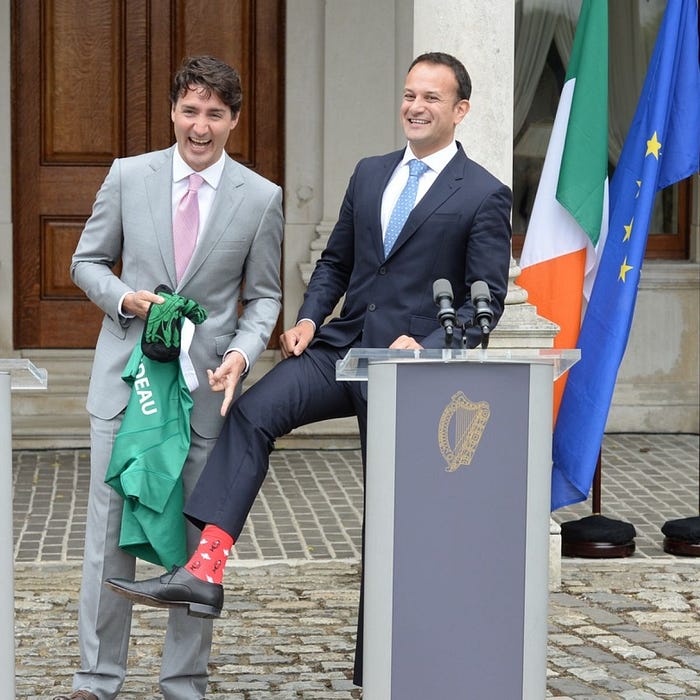Goodboyism: An Irish Political Neurosis

Brexit and Covid have provided a canvas on which we can paint our national complexes with greater clarity than ever before, and there is one in particular that we have been painting clearer and clearer over the last year. I want to take this article as a chance to put a name to it.
Goodboyism is the tendency in the Irish establishment to ostentatiously direct themselves towards external sources of cultural authority over and before the Irish populace or the interests of Irish people.
The closer those authorities are aligned to the values of the global managerial class, the greater the Irish tendency to seek their approval. So for instance deference can be paid to Barack Obama but not to Donald Trump.
We’re a small country that has to be canny about how we interact with greater powers and authorities — that’s fine. But Goodboyism is definitely not about maintaining cordial relations with countries or bodies who have a bigger megaphone. In fact, in certain cases the doctrine of Goodboyism may necessitate being obnoxious to greater powers, in the hopes of impressing the right sort of people.


A couple more points about this complex to help you in recognising it.
Goodboyism is performative. The Good Boy never tries please the teacher in silence or anonymity, because that would be a waste. The act has to be public and extravagant, so that there is no doubt about who is a Good Boy. You don’t merely support the WHO, or state that it is worth it’s flaws — you quadruple the funding.
Goodboyism is narcissistic. Irish people long to see themselves reflected flatteringly in the mirror of international attention. We can’t take pride in our embarassing past or present as a dismal backwater. What we can do is succeed by conforming better to upwardly mobile values than anyone else. It may be the case that the reflection is visible only to us, but we see it.
Goodboyism is motivated by feelings of cultural inadequacy and insecurity. The Irish reputation for rebelliousness and independence is an outrageous lie, at least in relation to our managerial class, who are conformist and obsequious to the roots of their hair. (This goes for both the political and cultural managers.) The yearning smouldering in their chest at all times is “please don’t have them think I’m a provincial.”
If Ireland or Irishness were enough our rulers might be content to act as they see fit, and let those actions speak for themselves. But they understand Irish identity as a cobbled together mess of retrograde embarrassments — priests, farms, potatoes — so at every moment we must prove we are on board with more edifying cultural trends. At every moment we must prove that we can shuffle off the dead weight of our mortifying inheritance. Perhaps in time we can annihilate it altogether, and immerse ourselves in something more tasteful and respectable and less burdensomely unique — that certainly seems to be the plan.
